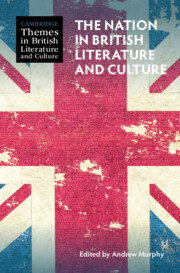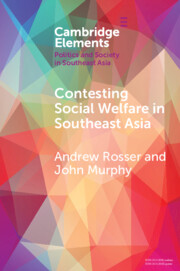232 results
Workflow and Outcome of Thrombectomy in Late Time Window: A Pooled Multicenter Analysis
-
- Journal:
- Canadian Journal of Neurological Sciences , First View
- Published online by Cambridge University Press:
- 19 April 2024, pp. 1-7
-
- Article
-
- You have access
- Open access
- HTML
- Export citation
Chapter 6 - ‘Now for Our Irish Wars’
-
-
- Book:
- Shakespeare at War
- Published online:
- 17 August 2023
- Print publication:
- 17 August 2023, pp 61-70
-
- Chapter
- Export citation
Copyright page
-
- Book:
- The Nation in British Literature and Culture
- Published online:
- 20 July 2023
- Print publication:
- 10 August 2023, pp iv-iv
-
- Chapter
- Export citation
Contributors
-
- Book:
- The Nation in British Literature and Culture
- Published online:
- 20 July 2023
- Print publication:
- 10 August 2023, pp viii-x
-
- Chapter
- Export citation
Part V - Futures
-
- Book:
- The Nation in British Literature and Culture
- Published online:
- 20 July 2023
- Print publication:
- 10 August 2023, pp 325-365
-
- Chapter
- Export citation
Contents
-
- Book:
- The Nation in British Literature and Culture
- Published online:
- 20 July 2023
- Print publication:
- 10 August 2023, pp v-vii
-
- Chapter
- Export citation
Part IV - Making the Modern Nation
-
- Book:
- The Nation in British Literature and Culture
- Published online:
- 20 July 2023
- Print publication:
- 10 August 2023, pp 241-324
-
- Chapter
- Export citation
Acknowledgements
-
- Book:
- The Nation in British Literature and Culture
- Published online:
- 20 July 2023
- Print publication:
- 10 August 2023, pp xi-xii
-
- Chapter
- Export citation
Part I - Origins
-
- Book:
- The Nation in British Literature and Culture
- Published online:
- 20 July 2023
- Print publication:
- 10 August 2023, pp 1-104
-
- Chapter
- Export citation
Part II - Writing the Nation
-
- Book:
- The Nation in British Literature and Culture
- Published online:
- 20 July 2023
- Print publication:
- 10 August 2023, pp 105-154
-
- Chapter
- Export citation
Chapter 1 - What Is Britain?
- from Part I - Origins
-
-
- Book:
- The Nation in British Literature and Culture
- Published online:
- 20 July 2023
- Print publication:
- 10 August 2023, pp 3-33
-
- Chapter
- Export citation
Chapter 21 - Borderline Britain
- from Part V - Futures
-
-
- Book:
- The Nation in British Literature and Culture
- Published online:
- 20 July 2023
- Print publication:
- 10 August 2023, pp 354-365
-
- Chapter
- Export citation
Index
-
- Book:
- The Nation in British Literature and Culture
- Published online:
- 20 July 2023
- Print publication:
- 10 August 2023, pp 366-374
-
- Chapter
- Export citation
Part III - Revolutions and Empires
-
- Book:
- The Nation in British Literature and Culture
- Published online:
- 20 July 2023
- Print publication:
- 10 August 2023, pp 155-240
-
- Chapter
- Export citation

The Nation in British Literature and Culture
-
- Published online:
- 20 July 2023
- Print publication:
- 10 August 2023

Contesting Social Welfare in Southeast Asia
-
- Published online:
- 10 June 2023
- Print publication:
- 06 July 2023
-
- Element
- Export citation
Classical novae in the ASKAP pilot surveys
-
- Journal:
- Publications of the Astronomical Society of Australia / Volume 40 / 2023
- Published online by Cambridge University Press:
- 24 May 2023, e025
-
- Article
-
- You have access
- Open access
- HTML
- Export citation
Mindful parenting intervention for parents of children with skin conditions: a single group experimental cases series
-
- Journal:
- Behavioural and Cognitive Psychotherapy / Volume 50 / Issue 5 / September 2022
- Published online by Cambridge University Press:
- 25 April 2022, pp. 462-480
- Print publication:
- September 2022
-
- Article
-
- You have access
- Open access
- HTML
- Export citation
Robert G. Ingram, Jason Peacey, and Alex W. Barber, eds. Freedom of Speech, 1500–1850. Politics, Culture and Society in Early Modern Britain. Manchester: Manchester University Press, 2020. Pp. 280. $130.00 (cloth).
-
- Journal:
- Journal of British Studies / Volume 61 / Issue 2 / April 2022
- Published online by Cambridge University Press:
- 04 May 2022, pp. 467-469
- Print publication:
- April 2022
-
- Article
- Export citation
Chapter 4 - Anglo-Irish Transitions
- from Part I - Nation and Empire
-
-
- Book:
- British Literature in Transition, 1900–1920: A New Age?
- Published online:
- 07 December 2021
- Print publication:
- 02 December 2021, pp 91-105
-
- Chapter
- Export citation



















